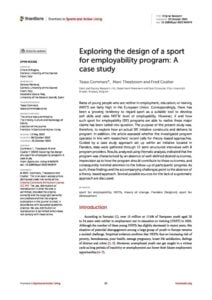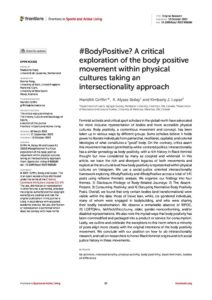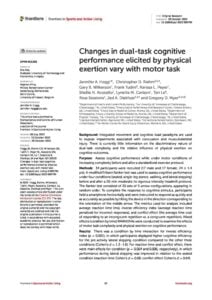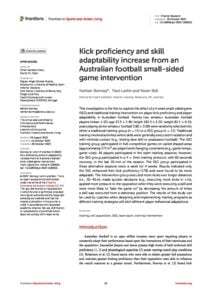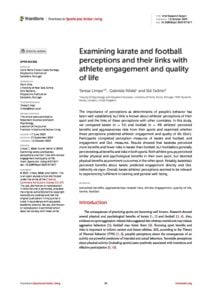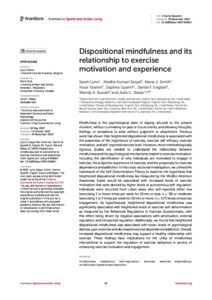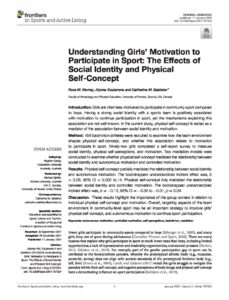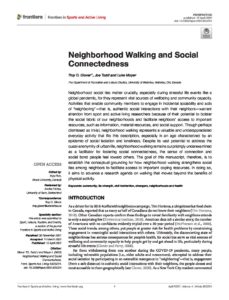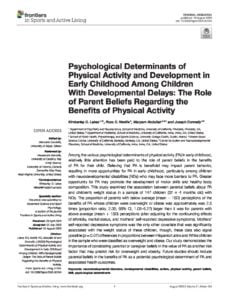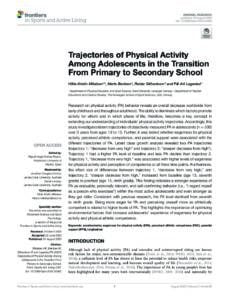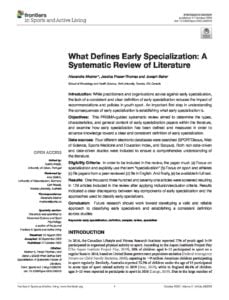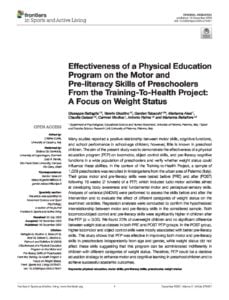-
Exploring the design of a sport for employability program: A case study
Abstract Rates of young people who are neither in employment, education, or training (NEET) are fairly high in the European Union. Correspondingly, there has been… -
#BodyPositive? A critical exploration of the body positive movement within physical cultures taking an intersectionality approach
Abstract Feminist activists and critical sport scholars in the global north have advocated for more inclusive representation of bodies and more accessible physical cultures. Body… -
Changes in dual-task cognitive performance elicited by physical exertion vary with motor task
Abstract Background: Integrated movement and cognitive load paradigms are used to expose impairments associated with concussion and musculoskeletal injury. There is currently little information on the… -
Kick proficiency and skill adaptability increase from an Australian football small-sided game intervention
Abstract This investigation is the first to explore the effect of a four week small-sided game (SSG) and traditional training intervention on player kick proficiency… -
Examining karate and football perceptions and their links with athlete engagement and quality of life
Abstract The importance of perceptions as determinants of people’s behavior has been well-established, but little is known about athletes’ perceptions of their sport and the… -
Dispositional mindfulness and its relationship to exercise motivation and experience
Abstract Mindfulness is the psychological state of staying attuned to the present moment, without ruminating on past or future events, and allowing thoughts, feelings, or… -
Understanding Girls’ Motivation to Participate in Sport: The Effects of Social Identity and Physical Self-Concept
Abstract Introduction: Girls are often less motivated to participate in community sport compared to boys. Having a strong social identity with a sports team is positively… -
Neighbourhood Walking and Social Connectedness
Abstract Neighborhood social ties matter crucially, especially during stressful life events like a global pandemic, for they represent vital sources of wellbeing and community capacity.… -
Psychological Determinants of Physical Activity and Development in Early Childhood Among Children With Developmental Delays: The Role of Parent Beliefs Regarding the Benefits of Physical Activity
Abstract Among the various psychological determinants of physical activity (PA) in early childhood, relatively little attention has been paid to the role of parent beliefs… -
Trajectories of Physical Activity Among Adolescents in the Transition From Primary to Secondary School
Abstract Research on physical activity (PA) behaviour reveals an overall decrease worldwide from early childhood and throughout adulthood. The ability to illuminate which factors promote… -
What Defines Early Specialization: A Systematic Review of Literature
Abstract Introduction: While practitioners and organizations advise against early specialization, the lack of a consistent and clear definition of early specialization reduces the impact of recommendations… -
Effectiveness of a Physical Education Program on the Motor and Pre-literacy Skills of Preschoolers From the Training-To-Health Project: A Focus on Weight Status
Abstract Many studies reported a positive relationship between motor skills, cognitive functions, and school performance in school-age children; however, little is known in preschool children.…


